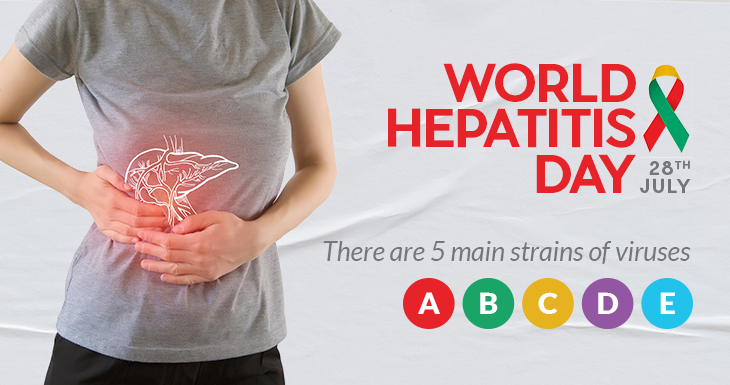World Hepatitis Day is remembered every July 28 to raise awareness about viral hepatitis, which represents one of the biggest health threats in the world.
This date was chosen because it was the day of the birth of Nobel Prize laureate Dr. Baruch Blumberg, who discovered the hepatitis B virus and invented a diagnostic test and the vaccine.
There are five main strains of viruses that cause hepatitis:
- Hepatitis A, is the most infectious type of this disease, it is contracted mainly by ingesting contaminated water or food, or by direct contact with infected people or objects.
- Hepatitis B is a serious liver infection, because it can become chronic, it is spread through body fluids: blood, sexually or from mother to child during pregnancy and childbirth.
- Hepatitis C is one of the most dangerous, as it can lead to serious health complications, such as cirrhosis, liver failure, and liver cancer. It is contracted by contact with contaminated blood and, to a lesser extent, by sexual contact.
- Hepatitis D is a virus that is molecularly formed by a chain of RNA and its manifestation requires that the person has been previously infected with the hepatitis B virus. It is transmitted in a very similar way to hepatitis B.
- Hepatitis E is caused by an enteric-transmitted RNA virus and causes typical symptoms of viral hepatitis, including anorexia, malaise, and jaundice.
Hepatitis B and C are the leading cause of death, with 1.4 million deaths per year.
The symptoms that should alert us are: fatigue, sudden nausea and vomiting, diarrhea, and abdominal pain or discomfort, especially in the upper right under the lower ribs (in the liver area), loss of appetite, dark-colored urine, and joint pain. Almost all patients make a full recovery and acquire lifelong immunity. However, a very small proportion of cases can die from fulminant hepatitis. 325 million people in the world have some type of hepatitis.
It is important to keep in mind some tips to prevent viral hepatitis:
- Improve hygiene: wash your hands well with safe water and do not drink non-potable water
- Get vaccinated
- Get blood tests
- Safe sex
- Do not share needles or get tattoos in unsafe places
Recall that in May 2016, the World Health Assembly approved the Global Health Sector Strategy (GHSS) on viral hepatitis, which proposes to eliminate viral hepatitis as for public health by 2030 (defined as a reduction of 90 % of incidence and 65% of mortality with respect to HBV and HCV)
As every year, the WHO calls on all countries to collaborate to eliminate viral hepatitis as a public health problem by 2030.


